Oakland Post
“Where there is no vision, the people perish...” Proverbs 29:18 postnewsgroup.com Weekly Edition. February 8 - 14, 2023
Community Leaders call for Solidarity Against Threats and
A press conference Monday, Feb. 6 at Oakland City Hall calls for solidarity against threats of violence and intimidation of Black women leaders. Some of the elected officials and leaders at the event were [Bottom row l-r]: Assemblymember Liz Ortega, Councilmember Carroll Fife and State Senator Senator Aisha Wahab. (Middle row): Councilmember Janani Ramachandran, Council President Nikki Fortunato Bas, Councilmember Rebecca Kaplan, Mayor Sheng Thao and Assemblymember Mia Bonta. (Top row): Councilmember Kevin Jenkins and Rev. Cheryl Ward.
Evict Residents of Wood Street Homeless Encampment
This ‘calamity … will force more unhoused people onto the streets and into other Oakland neighborhoods,’ says housing rights activist James Vann
By Ken Epstein
Federal Court Judge William Orrick, who one month ago blocked the city of Oakland’s eviction of unsheltered residents off Wood Street in West Oakland, has now ruled the city can proceed with removing the encampment after he determined that Oakland has shown it has enough shelter beds for those who are displaced.
The city says it wants to clear the site to build 170 units of affordable housing. Residents of Wood Street, who have developed a self-help community at the site, want the judge to continue to protect the encampment, at least until alternative shelter sites are in operation.
has “misrepresented” the facts to the judge. The city does not have “adequate replacement housing” available for the residents of Wood Street, he said.
“The calamity that will follow is another instance of the city’s failure to acknowledge the homelessness crisis as real and to implement timely actions to assure adequate accommodations and health and safety of the affected unhoused residents,” said Vann.

“Armed with the judge’s lifting of the restraining order, the city will proceed, beginning this week, to force more unhoused people onto the streets and into other Oakland neighborhoods,” said Vann.
that must be vacated the following day between the hours of 7 a.m. to 7 p.m.,” said Vann.
particularly Black women who are elected leaders or leading members of justice advocacy organizations.

While threats, violence and harassment are rising across the nation, including highly publicized threats against Congressional leaders Ilhan Omar and Alexandria Ocasio-Cortez and the attack

and harassment — we are seeing a rise in violence across the nation,” said Oakland Councilmember Carroll Fife, who called for the press event after increased threats against herself and others.


This “is an attempt to limit democracy; they are seeking to stall and stymie the voices of people
OPINION: Who Is Watching the Watcher?
partment, rooting out rotten cops and creating an environment where constitutional policing was embraced and one where dishonorable behavior results in termination or correction.
By Lynette Gibson McElhaney
In 2003, in response to a federal lawsuit brought forward by John Burris and Jim Chanin, the City of Oakland entered into a Negotiated Settlement Agreement (NSA) to atone for the sins of “the Riders,” a group of police officers, who reportedly violated the civil rights of Oakland residents through beatings, harassment, planting evidence and kidnapping.
In addition to the $11 million paid to 119 victims, the City agreed to reform the Police De-
In 2010, the Court installed veteran New York Police Chief Robert Warshaw as the monitor. After clashing with Thomas Frazier, the court-appointed compliance director, Warshaw had Frazier removed and assumed both paid positions as monitor and compliance director.
Any common person looking at this would immediately recognize that Warshaw was now in a selfserving position. On the one hand, as compliance director, his job is to ensure that the Oakland Police Department is resourced with the best training, practices and policies to comply with the NSA; on the other hand, his job is to serve as
cause it isn’t just about me,” she said. “I have taken a vow to fight for my constituents and to fight for the residents of this city, and the more that I speak, the more that I hear other stories. These stories need to be documented in order for us to address the deeply rooted issues motivating this violence and
an auditor of these practices.
Numerous scandals and abuses have persisted in the department since Warshaw assumed the role as Oakland’s top Supra cop -- from the painful killing of 18-year-old Alan Blueford in 2012 to the cover-up of the 2015 Celeste Guap sexual exploitation scandal, to the 2018 shooting death of Joshua Pawlik and now, the situation involving the alleged misdeeds of two officers.
Since the North Carolina-based Warshaw took the helm of OPD, he has constantly urged the termination of a string of police chiefs as he fails to bring forward policies and practices to truly transform the culture and performance of the department. And while three successive mayors and 12 chiefs dance around trying to meet Warshaw’s vaguely defined demands, Oakland remains atop the list of dangerous cities in the state.
For his failures, Warshaw is paid $1.2 million annually, plus expenses and the costs associated
Said Orrick, “The city’s obligation is to provide, in this context, alternative shelter. That’s the thing that I required of them. They have done that. It’s not preferable for you, but that is what they have now been able to put together.”
Responding to the judge’s decision, housing rights advocate James E. Vann, co-founder and advisor to the Oakland Homeless Advocacy Working Group (HAWG), said Orrick’s Feb. 3 decision to reverse his original temporary restraining order was not unexpected.

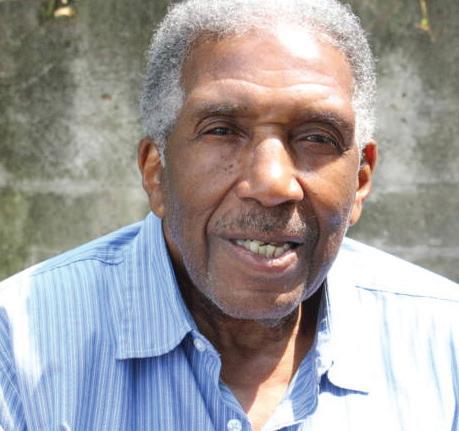


However, Vann said the city
He said Wood Street residents have organized themselves and made clear to the city “the solidarity of their mutually helpful and caring community … (and) the desire of the residents to remain a community and not be thoughtlessly dispersed throughout the city.”
The city failed to reveal to the judge that “many of the evicted and unhoused Wood Street residents will be rejected by shelters for an overnight stay because of rules preventing evictees from bringing their pets and belongings. Rest on a cot offers a temporary respite
“It is unfortunate that the city’s homelessness administrator was not up to the job and failed to interact with the unhoused residents, or to make adequate plans for temporary tiny house accommodations prior to the funding deadlines for the new housing development,” he said.
This action, once again, demonstrates “the city’s ineptness (and) its undefined homelessness program, (which) will force many unhoused residents onto the streets during the worse imaginable weather,” where they will face the ravages of hypothermia, frostbite, and continuing pandemic, said Vann.
A Son of Oakland Gives Back
land, William Haney has traveled the world managing and promoting his boxer son, Devin Haney, who holds four undisputed championship belts as the world’s youngest world champion in his weight class.


The elder Haney, known to many as Bill, has raised his son to be a world champion, not only in the ring but equally as a man.
Bill responded with very inspiring, insightful answers to my questions in a way that demonstrates his dedication to fatherhood and shared what it takes to nurture and raise kids to be true to their nature as kings and queens.
By Richard Johnson
I write this article with pride and admiration for having the opportunity to speak with and ask of a son of Oakland who shares my background of being formerly in-
carcerated, but not allowing it to be a hindrance to positive growth toward becoming a better man, better father, and a contributor to this precious thing we call life.
Born and raised in East Oak-

I asked Bill if he considered himself to be an entrepreneur or a philanthropist; he said the latter. He embraces the concept of giving back to the community by contributing to its prosperity in various forms as his body of work plainly
 Photo by Ken Epstein.
William Haney and boxing champion Devin Haney.
Photo by Ken Epstein.
William Haney and boxing champion Devin Haney.
‘ ‘ Don’t Forget
Page
Housing rights advocate James E. Vann, co-founder and advisor to the Oakland Homeless Advocacy Working Group (HAWG)
About David Fagen...
10
Driving the Green Book... Page 5
Mental Health for Children/Youth... Page 10
Conservative, Anti-“Woke” Attacks... Page 6
Before Chocolate Cities: The New Promised
By Tamara Shiloh
During the late 19th and 20th centuries, at least 88 and as many as 200 Black towns were established throughout the United States. Mostly or completely Black incorporated communities with autonomous Black city governments and commercially oriented economies, these cities were created with purposeful economic and political motives.
The greatest draw to these cities was the ability to escape racial oppression, control one’s economic destiny, and prove Black capacity for self-government.
They were thought to be the New Promised Land. Texas would lead the effort with the founding of Shankleville Community (1867) and Kendleton (1870), both populated by ex-slaves from the surrounding countryside.
At the end of the Reconstruction-era South, Nicodemus, Kansas, (1877) was founded by newly freed slaves.

The land on which Nicodemus and other Black communities in Kansas stood turned out to be unproductive for agriculture. Natural drought cycles diminished efforts to raise crops. Despite this setback, the lifestyle remained
COMMENTARY: Divisions Set in Concrete and Pavement
better than that of the South. Instead, residents built houses, businesses, clubs, churches, and schools. They also “participated in political and commercial life in ways previously denied to them,” according to the National Park Service website.
Nicodemus, populated with some descendants of the original settlers, still stands. The 2020 census reported its population to be 14.
On June 30, 1908, Allen Allensworth, a former soldier, and William Payne, a teacher, created the California Colony and Home Promoting Association. It was soon dubbed Allensworth. It had a depot station on the main Santa Fe Railroad line from Los Angeles to San Francisco, the soil was fertile, the water seemingly abundant, and the acreage was plentiful and reasonably priced, according to the News One website.
The town became a member of the county school district and the regional library system. There, the first Black Justice of the Peace in post-Mexican California was elected. By 1914, it boasted 100 residents. Most of the adults worked 10-acre farms nearby, which they purchased for $110 per
acre on an installment plan.
Allen Allensworth, in 1914, lobbied for an educational institute. That’s when a series of methodical racist acts began to trigger the community’s decline. The Santa Fe Railroad built a spur line to neighboring Alpaugh, depriving Allensworth of its lucrative carrying trade. Santa Fe also refused to hire Blacks as managers or ticket agents of the station located in the colony despite repeated letters and recriminations.
Powerful white farmers diverted the White River to irrigate their own crops and cut off Allensworth’s supply. The Pacific Farming Company then failed to honor its commitment to supply sufficient water for irrigation. But the largest factor in the community’s decline was Allen Allensworth’s death. By 1920, people began to leave the area.
On Oct. 6, 1976, what was once a thriving Black community was dedicated as a park.”
Read more about the dynamic network of cities and towns built, maintained, and defended by African Americans in “Chocolate Cities: The Black Map of American Life,” by Marcus Anthony Hunter and Zandria F. Robinson.
By Ben Jealous
The racial divisions that have split our country for centuries don’t just live in people’s hearts and heads. Some of them exist in concrete and pavement running right through certain neighborhoods. They are structural racism in the most tangible sense.
In Milwaukee last month, local activists told me about their fight against that kind of division. Wisconsin’s transportation department wants to expand a crumbling 3.5-mile stretch of Interstate 94 running through the state’s largest city at a cost of $1.2 billion and about 49 acres of land in the neighborhoods adjoining the roadway.
Like Overton in Miami, East Los Angeles and West Montgomery, Alabama, those neighborhoods, home to poor black and brown residents, were subdivided 60 years ago when I-94 was built. The highway continues to cut them off today.
It’s disingenuous to make plans today that don’t consider the history of these highways in places like Milwaukee. The cost to locate interstates, built as courts were ordering desegregation of public schools and housing, was borne by communities of color whose residents were barred from home loans that would have let them move to suburbs that got disproportionate benefit from faster
commutes. Planners used code words like blight, renewal, and efficiency to confuse that reality.
A highway project like this creates an actual intersection between creating more equitable communities and protecting the planet. Public works projects that encourage more traffic increase air pollution that impacts our climate, increase noise pollution, and add to flooding and contaminated runoff that damage swimmable, fishable rivers. Those who live closest breathe the most exhaust and live with the constant drone of traffic, but the environmental impact unquestionably stretches far wider.
The estimated cost of expanding I-94 is about $40 million more than fixing the existing six lanes. That’s the same amount that a 50% cut in the current state budget cost mass transit systems in Madison and Milwaukee. Most Milwaukee mass transit riders are workers riding to a job or the disabled and seniors who no longer drive. While black and brown riders make up a disproportionate share of the total, most riders are white.
When we see these fabricated divisions, the question we should ask is who benefits from creating them? We know from troubling experience that the self-interested find ways to separate us even when our interests are the same. Who benefits from a wider inter-
state? It’s clearly not its neighbors. Not the Milwaukee City Council who opposed the plan. Not drivers today or in years to come as updating the current highway without adding lanes will improve safety and reduce congestion. And not millennials that Wisconsin has spent millions to retain and attract who say they want to live in places that don’t demand driving.
A local issue like this one in Wisconsin matters even if you live three states away because one like it may be coming to where you live soon. We’re on the cusp of many more in every state. Historic federal funding in 2021 and 2022 to repair infrastructure and invest in a cleaner economy must be spent place by place. We need to follow the example of the folks I met in Milwaukee — stay vigilant, never assume that decisions will be made in the best interest of everyone or the planet, build the biggest coalitions we can, and hold officials accountable when we vote.
Ben Jealous is incoming executive director of the Sierra Club, America’s largest and most influential grassroots environmental organization; former national president of the NAACP; and professor of practice at the University of Pennsylvania. His new book “Never Forget Our People Were Always Free” was just published.

CITY OF OAKLAND REQUEST FOR QUALIFICATIONS (RFQ)

RE-ADVERTISMENT FOR HUMAN SERVICES DEPARTMENT AND DEPARTMENT OF VIOLENCE PREVENTION
Contract Amount: Varies
Contract Terms: Up to Three Years (with option to renew)
Project Description: The Human Services Department (HSD) and the Department of Violence Prevention (DVP) announce the release of its 2023-2025 Request for Qualifications (RFQ) to identify qualified agencies, firms, project teams or individuals and solicit Statements of Qualifications (SOQ) to provide services including (but not limited) to the following categories: Strategic Planning and Community Engagement, Design, Marketing and Communication Services, Independent Evaluation of Program Services, Application and Review System, Data Reporting, Management Information Services, Training, Technical Assistance and Capacity Building, Workforce-Focused Capacity Building and Employer Engagement, Independent Auditing (Financial & Programmatic. If you have already responded to the RFQ during the month of November 2022, you do not need to re-submit another SOQ.
Instructions: The RFQ instruction package will be available beginning Friday, February 10, 2023, via HSD’s website, or through iSupplier
How to Apply: Application and Statement of Qualifications (SOQ) must be submitted electronically through iSupplier. This is the City’s centralized vendor database. All businesses that want to contract with the City must register with iSupplier, to receive bid notifications, to apply for local business certification, and view purchase orders and payment status. Businesses are required to keep their contact email and address site current, to minimize delays and errors. Once registered with iSupplier, navigate to View current RFQ Opportunities and click the appropriate link for this RFQ. Note: Email submissions and hard copies WILL NOT be accepted
Proposal Submittal Deadline: Friday, March 17, 2023 by 2:00 P.M. via iSupplier.
Reminders:
• iSupplier will not allow submission of proposals after 2:00 P.M. Friday, March 17, 2023.
• All who wish to participate in this RFP must register through iSupplier at https://www. oaklandca.gov/services/register-with-isupplier to receive addenda/ updates on this RFP, submit proposals, invoice payments if selected, and direct notification of future bid opportunities.

• The following policies apply to this RFP: Equal Benefits • Revised L/SLBE • Living Wage • Campaign Reform Act
• Prompt Payment
• Arizona Boycott • Dispute
• Sanctuary City Contracting and Investment Ordinance
Disclosure • Border Wall Prohibition
For Answers to Questions:
• For project-related questions, contact Project Manager via email at oaklandhsdRFQ@ oaklandca.gov
• For iSupplier registration support, send email to isupplier@oaklandca.gov or call (510) 238 7643 and advise that you need HELP to expedite registration for this RFP.
Asha Reed, City Clerk and Clerk of the City Council, (February 10, 2023) The City Council reserves the right to reject all proposals.
postnewsgroup.com THE POST, February 8 - 14, 2023 Page 2
Ben Jealous
THE POST, February 8 - 14, 2023, Page 3 postnewsgroup.com © 2023 California Department of Public Health As soon as you feel COVID-19 symptoms: Now there’s medication to treat COVID-19. Taken within the first 5–7 days of symptoms, these medications can stop the illness from getting serious and help you test negative sooner. Early evidence also suggests medication can help lower the risk of long COVID symptoms. Visit YouCanBeatIt.org or call (833) 422-4255 to ask for COVID-19 medication. T:12" T:20.5" B25066_15a_7824_Print_AA_12x20_5_TTYB-R4_NEWS.indd 01.05.2023 RQD EPSON
Voters Will Determine Fate of Fast-Food Workers Pay Raise
By Edward Henderson California Black Media

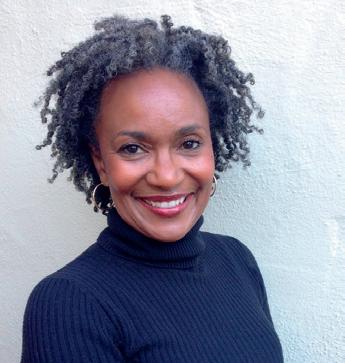
Last September, Gov. Gavin Newsom signed Assembly Bill (AB) 257 into law. Supporters of the legislation, authored by Assemblymember Chris Holden (DPasadena), hailed it for its promise to provide a minimum wage and improve working conditions for fast food workers.

But late last month, the future of AB 257 — also known as “the Fast Act” or “the Fast Food Recovery Act” — came into question. California Secretary of State Shirley N. Weber’s office announced that a referendum seeking to overturn the law had gathered enough signatures to be placed on the November 2024 ballot.
“To qualify for the ballot,” the Secretary of State’s office wrote, “the referendum needed 623,212 valid petition signatures, which is equal to 5% of the total votes cast for governor in the November 2018 general election.


When AB 257 passed last year along party lines, it authorized the establishment of the Fast-Food Accountability and Standards Recovery Act or FAST Recovery Act. The bill established the Fast Food Council within the Department of Industrial Relations, to be comprised of 10 members appointed by the governor, the speaker of the Assembly, and the Senate Rules Committee.
According to the bill’s language, the purpose of the council is to establish “sector-wide minimum standards on wages (up to $22/hour in 2023 with capped annual increases), working hours, and other working conditions related to the health, safety, and welfare of, and supplying the necessary cost of proper living to, fast food restaurant workers, as well as effecting interagency coordination and prompt agency responses in this regard.” The act prohibits



retaliation against fast-food workers for making certain workplace complaints.
Opponents of AB 257, led by a coalition called Save Local Restaurants, gathered more than 1 million signatures on a referendum petition. About 712,000 of them were deemed valid by Weber’s office, thus putting the referendum on the Nov. 5, 2024, ballot.


The Los Angeles Times published an article telling the stories of 14 voters who say they were misled by canvassers collecting signatures for the referendum. Many of them said that information was withheld from them about the nature of the campaign and were simply told it would support fast food workers.
But the laws’ opponents insist that their challenge to AB 257 is widely supported.
“California voters have made clear that they want a say on whether they must shoulder the burden of higher prices and job losses caused by the FAST Act,” said Save Local Restaurants in their press release. “This legislation singles out the quick service restaurant industry by establishing an unelected council to control labor policy, which would cause a sharp increase in food costs and push many Californians, particularly in disenfranchised communities, to the breaking point.”
The referendum means that the law is suspended until the November 2024 election when voters will decide whether to repeal it.
Holden, who is a former franchise owner said he believes AB 257 would protect both owners and employees — if those opposing the law allow it to work.
“Given, the final version of the bill removed many expressed con cerns of subpoena power and jointliability. While, strengthening the oversight role of the Legislature, providing for equal Sector Council
representation and adding a sunset clause to evaluate effectiveness.
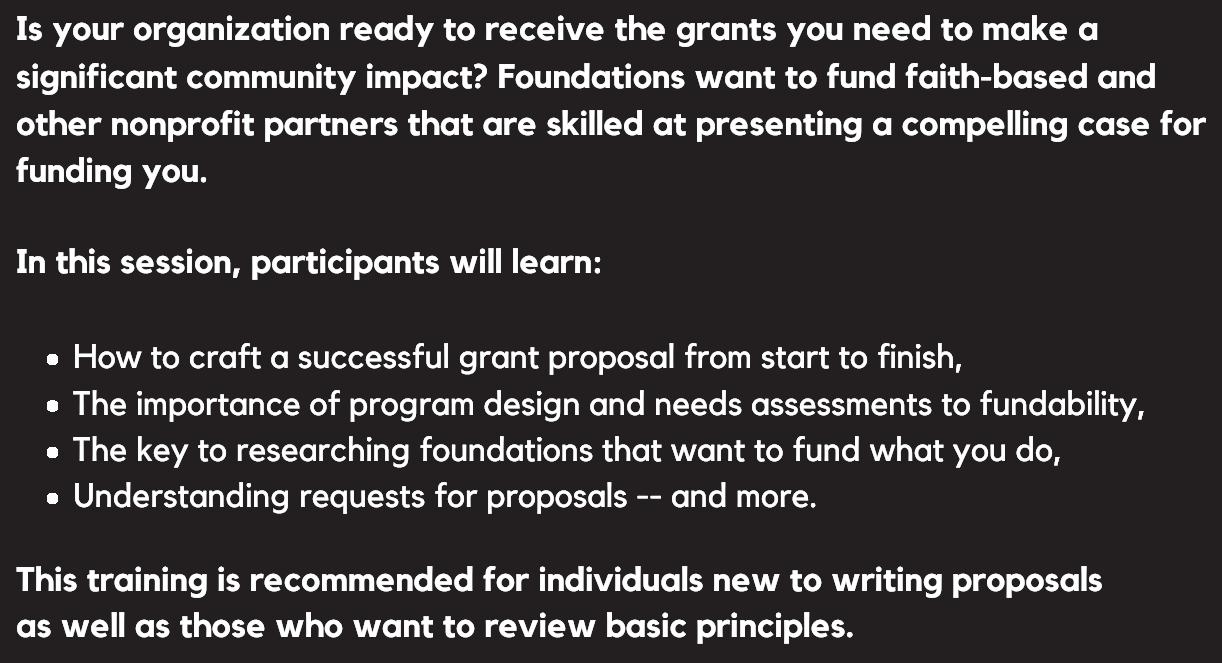
As a result, this first in the nation worker protection bill is worthy to become law in California,” Holden said when Newsom signed the law last year.
Labor advocates believe the legislation could create a precedent in the U.S for negotiating workplace standards, which would, in turn, revolutionize the collective bargaining process.

However, the coalition of businesses opposing the law feel it would leave businesses with higher labor costs and hiked-up food prices.
According to the nonpartisan Fair Political Practices Commission, fast-food corporations and business trade groups including In-N-Out, Chipotle, Chick-Fil-A, McDonald’s, Starbucks and the National Restaurant Association donated millions to support the referendum effort.

“The FAST Act is bad policy that threatens not only quick service restaurants, but the independents operating in the same neighborhoods,” National Restaurant Association Executive Vice President for Public Affairs Sean Kennedy said in a press release. “There is no way that the regulations passed by this unelected council would not damage the state’s restaurant industry, harm its workforce, and leave diners paying the bill.
“We’re pleased that Californians will get the chance to exercise their constitutional right to vote on this law and will continue to support the operators, small business owners, and workers that make the restaurant industry so important to our customers’ lives.”
“Driving the Green Book: A Road Trip Through the Living History of Black Resistance” by Alvin Hall
By Terri Schlichenmeyer
The gas tank is full of fuel.
The tires are new, you checked the oil twice, the speedometer’s calibrated, your headlights are intact, all good. The vehicle’s not flashy, so there’s absolutely no reason to attract attention. And yet, as in “Driving the Green Book’’ by Alvin Hall and as your ancestors did, you sweat that all-day road trip.
In 2015, while doing research for a podcast, Alvin Hall discovered something that intrigued and surprised him: one of his sources mentioned The Negro Motorist Green Book. Granted, when he was small, his family didn’t travel much from their home on Florida’s panhandle but still — how did Hall not know about that book? Surely, his aunts had one, right? How did the Green Book escape notice by his and other generations, when it was such an essential part of Black America for decades?

Needing to know and needing to understand what it was like to “drive the Green Book,” Hall and two younger colleagues took a road trip after the podcast was
done. They started in Detroit and traveled through small towns and cities, Cleveland and Cincinnati, Louisville, Nashville, Memphis, Birmingham and Montgomery, Mobile, Jackson, ending in New Orleans, which was the approximate route a northern-living, JimCrow-escaping Great Migration worker might have taken on an annual trek to visit kin back home in the South.
That route, as Hall points out, could’ve been uncomfortable, at best, or dangerous, at worst.
Not all gas stations, restaurants, or hotels welcomed Blacks; some places actively chased them off with threats or more. The Green Book, “small and thin” and meant to be tucked inside the glove box, changed all that with a guide to help the Black traveler find safe accommodations, fuel, and places to avoid.
With the latter in mind, Hall and his fellow travelers took to the road, and while they drove, they separately wondered if they’d be stopped by a policeman.


An adult man and two younger women — they could handle a stop
like that today, right?
So what was DWB like in 1945?
Also relevant: how far have we come? That question, a ton of relevance, and a small whiff of threat accompany every mile that author Alvin Hall writes about, and in “Driving the Green Book,” we’re taken along for that ride.
Maybe you’ve seen the movie or read about the Green Book elsewhere, but those things pale in comparison to the stories Hall tells. These are tales of making do in embarrassing ways to avoid jail, of sleeping on concrete, of driving as an act of defiance, and of being warned to leave town or else. These authentic tales, told by experts and those who “lived” the Green Book, are like punches to the gut, but they aren’t surprising. They’re shocking but not unexpected. “We’re still living it,” says Hall, and that’s just plain sobering.
Readers who love to travel will want to tuck this in their carry-on or console. If there’s a bit of quiet activism inside you, “Driving the Green Book” will fuel it.

THE POST, February 8 - 14, 2023, Page 5 postnewsgroup.com
O C C U R & T h e S a n F r a n c i s c o F o u n d a t i o n F A I T H S P r o g r a m P r e s e n t : A M o d e l B u i l t O n F a i t h 2 0 2 3 T h e I m p a c t S e r i e s F e b r u a r y 2 3 r d 9 a m - 1 1 a m P S T ZOOM MEETING ID: 861 4945 3331
Fast food workers marching in front of the State Capitol August 17, 2022, Sacramento, CA. CBM file photo. Alvin Hill, photo by Jim Franco.
THE POST, February 8 - 14, 2023, Page 7 postnewsgroup.com Public Notices, Classifieds & Business To place a Legal Ad contact Tonya Peacock: Phone: (510) 272-4755 Fax: (510) 743-4178 Email: tonya_peacock@dailyjournal.com All other classifieds contact the POST: Phone (510) 287-8200 Fax (510) 287-8247 Email: ads@postnewsgroup.com THE POST PUBLISHED EVERY WEDNESDAY 360 14th Street, Suite B05, Oakland, CA 94612 TEL: (510) 287-8200 FAX:: (510) 287-8247 info@postnewsgroup.com www.postnewsgroup.net Paul Cobb - Publisher Brenda Hudson - Business Manager Wanda Ravernell - Sr. Assoc. Editor Ken Epstein — Writer and Editor Maxine Ussery - COO Jack Naidu - Production Manager Conway Jones - Editor, Capitol Post Photographers: Zack Haber, Amir Sonjhai, Auintard Henderson Contributors: Zack Haber, Tanya Dennis, Kiki, Godfrey News Service, Robert Arnold Distribution: A and S Delivery Service abradleyms72@gmail.com (415) 559-2623 Godfrey News Service eelyerfdog@juno.com (510) 610-5651
Simon Burris: *Africana Diaspora
Black History Crossword 2023
Ashe - Meghan
www.simonburris700.com
Across
1 *Tennis champion Arthur 5 *___ Markle, American Duchess of Sussex
11 _ _ _ _ ipop (candy)
12 Revokes, in law
13 Create __ me a clean heart (Psalm 51:10)
14 *Marvin ___, singer
16 *_ _ _ sey Russell or Hussle, for short
17 *U.S. Secretary of State Powell (2001-2005)
18 Abbr. for right side
19 *Vice President Kamala
21 York Teachers Assn (abbr.)
23 _ _ Salvador
24 *Original "Juneteenth" state; _ _ xas
25 *Tuskegee Airmen, briefly
27 *"I _ _ Legend" Will Smith film (2007)
28 Ent _ _ _ rise (venture)
30 Hair dressing
32 Illin _ _ s
33 *Jazz Hall of Fame singer Vaughan
34 Relaxing getaway
35 * Slave rebellion leader Nat _ _ _ _ er
36 *Los Angeles mayor Bass' initials
38 *Washington with two Oscars
40 *"Mood Indigo" bandleader Ellington
42 Trios, bands, etc.
43 *Verdi opera setting in Egypt
Down
1 *Boxing legend Muhammad
2 *Richard Wright's classic "Native ___"
3 Heavy load (abbr.)
4 Ansel ___; "West Side Story" actor (2021)
5 __ __ Mother's Day month (2 wds.)
6 Heaven on earth
7 *Geor _ _ Washington Carver; agricultural scientist
& peanut butter inventor
8 *___ Sampson; cell phone inventor, 1972
9 *1839 slave mutiny ship (movie 1997)
10 I _ _ _ect (examine)
15 "It's a sin to tell __ __ " (2 wds.)
17 *Initals for comedian/actor Rock
19 ___ haw!
20 *NBC's weatherman (2 wds.))
22 *_ _ _ Zion Church
25 Torrance (city) (abbr.)
26 *___ Gorman; President Biden's Inaugural poet
29 *Alicia Keys' instrument
30 * Dunbar, Robeson, Chris & others
31 "Just say ___" (dentist)
33 *_ _ _ _ in Fetchit; first Black actor to earn $! million (1925-1976)
34 South Dakota Gov, briefly
36 Kenya/Kuwait/Denmark (United Nations trio) (initials)
37 Girl's nickname
39 *Native South African; _ _ lu
41 *Joe Lo _ _ s: The Brown Bomber boxer
Project Description: The City of Oakland Finance Department (hereinafter referred to as the “City”) is seeking proposals from independent, experienced and qualified businesses or entities (“Contractor”) to serve as a legal process server on an as-needed basis and nonexclusive basis. The “as-needed basis and non-exclusive basis” means that the City does not guarantee the minimum of legal process services needed from the Contractor, nor does the Contractor have exclusive rights to receive the services.

The City has historically filed approximately 360 cases on a yearly basis. These cases are mostly filed under the jurisdiction of the Alameda County Small Claims Court. It is important that all parties who are involved in these cases are provided adequate and timely notice. The work of the process server is a critical step in adjudicating these cases
Proposal Submittal Deadline: Submittals are due no later than Friday, March 10, 2023 by 2:00 P.M. via iSupplier. Please log on to iSupplier to submit your proposal online before the 2:00 P.M. deadline. Please register in iSupplier at least seven days prior to submittal to avoid last minute complications. In addition, please submit an email copy of the proposal to the project manager Huey Dang, at hdang@oaklandca.gov. Questions regarding online submittal through iSupplier must be directed to isupplier@oaklandca.gov to the attention of Marina De La Torre NOTE: (1) Proposals not received at the above location by the stated deadline will be returned unopened; (2) If using a courier service, please secure guaranteed delivery to the required location and time as noted above.
Reminders:
• All who wish to participate in this RFP must register (at least 5 days prior to submittal due date) through iSupplier at (https://www.oaklandca.gov/services/register-with- isupplier) to avoid last minute submittal complications and receive addenda/ updates on this RFP.
• Did not receive and invitation? Start Early with iSupplier registration. Upon completion of registration, send an email to iSupplier@oaklandca.gov listing “RFP for Automobile subrogation” as the subject and advise of an invitation to the RFP. DWES will add your business to the RFP invitation.
• Experiencing bumps when registering? Send email to isupplier@oaklandca.gov or advise DWES support staff that you need HELP to expedite registration for this RFP!
• The following policies apply to this RFP: Equal Benefits • 20% L/SLBE • Living Wage • Campaign Reform Act • Professional Services Local Hire • Prompt Payment • Arizona Boycott • Dispute Disclosure • Border Wall Prohibition • Sanctuary City Contracting and Investment Ordinance.
• Please read Contract Boilerplate and Insurance Requirements (Schedule Q) in preparation for your success.
Contacts for Answers to Questions Regarding:
1. For answers to written emailed questions, send to: Marina De La Torre via email at mdelatorre@oaklandca.gov (510) 238-6419.
2. For iSupplier registration support, contact: isupplier@oaklandca.gov
3. Project Manager: Huey Dang via email at hdang@oaklandca.gov, (510) 238-6779
Asha Reed, City Clerk and Clerk of the City Council, (February 10, 2023) The City Council reserves the right to reject all proposals.
postnewsgroup.com THE POST, February 8 - 14, 2023, Page 8
1 2 3 4 5 6 7 8 9 10 11 12 13 14 15 16 17 18 19 20 21 22 23 24 25 26 27 28 29 30 31 32 33 34 35 36 37 38 39 40 41 42 43
CITY OF OAKLAND REQUEST FOR QUALIFICATIONS (RFQ) REQUEST FOR QUALIFICATIONS (RFQ) FOR PROFESSIONAL LEGAL PROCESS SERVER
TBD Terms: TBD
Contract Amount:

postnewsgroup.com THE POST, February 8 - 14, 2023, Page 9
COMMENTARY: During Black History Month Don’t Forget David Fagen
By Emil Guillermo
Black history is American history is Asian American history.
Don’t let anyone tell you otherwise.
When the American is an African American in Asia, that’s a rich history worth contemplating.
If the name David Fagen doesn’t roll off your lips, or immediately come to mind, then remember it now. It’s a history lesson and a humanity lesson that bears repeating.
For the history buffs, Fagen was an African American born in Florida in 1875. It was after slavery, after the Civil War, and yet was there really much difference? You still had Blacks who were lynched, burned and murdered in the South.
This was the reality for Fagen, who joined the segregated, allBlack 24th Infantry and was sent to fight Native Americans as a “Buffalo Soldier.”

His unit was so good that the Army sent them to Cuba for the Spanish American War. And then they were dispatched to the Philippines for what I’d rather call the U.S.-Philippine War, reserving the lead position to the aggressor.
The first shots were fired Feb. 4, 1899.
It was around that time that Fa-
gen started hearing the “N” word being hurled about. But when he turned his head, the Filipinos turned their heads, too. The white officers were calling Filipinos the “N” word.
The “N” word as the “F” word?
That’s when the soul searching began for Fagen. How could any African American with integrity or empathy fight a white man’s war and turn his gun on another person of color fighting for freedom?
I don’t know how Fagen felt about the Native Americans he encountered in previous campaigns, but by the time he was in the jungles of the Philippines, he changed.
Fagen could no longer fight for the U.S. imperial army. He became one of 15 to 30 deserters among the four units of Buffalo soldiers.
And he was the only one known to have joined the Filipino freedom fighters of the U.S.-Philippine War.
Others felt what Fagen felt. One of my favorite Black history books is William Gatewood’s, “Smoked Yankees and the Struggle for Empire: Letters From Negro Soldiers, 1898-1902.”
The letters make the racist nature of the war clear and provide an understanding for Fagen’s defection.
Gatewood’s book includes letters written by African American soldiers and published in the U.S. by the Black ethnic press, such as the Boston Post, the Cleveland Gazette, and the American Citizen in Kansas City.
“I feel sorry for these people and all that have come under the control of the United States,” wrote Patrick Mason, a sergeant in Fagen’s 24th Infantry, in a letter to
the Cleveland Gazette. “The first thing in the morning is ‘(N-word)’ and the last thing at night is ‘(Nword).’ You are right in your opinions. I must not say as much as I am a soldier.”
It took the courage of humanity to take action like Fagen did.
If you’ve never heard of this history, it’s not surprising. It’s one that runs counter to America’s white supremacist narrative.
I was surprised that even my father, who was born under the American flag in the Philippines a few weeks after the U.S.Philippine war started, had never heard anything about Fagen. That likely wasn’t taught in his colonized American school, where he learned English well enough to come to America in the 1920s as a colonized American national.
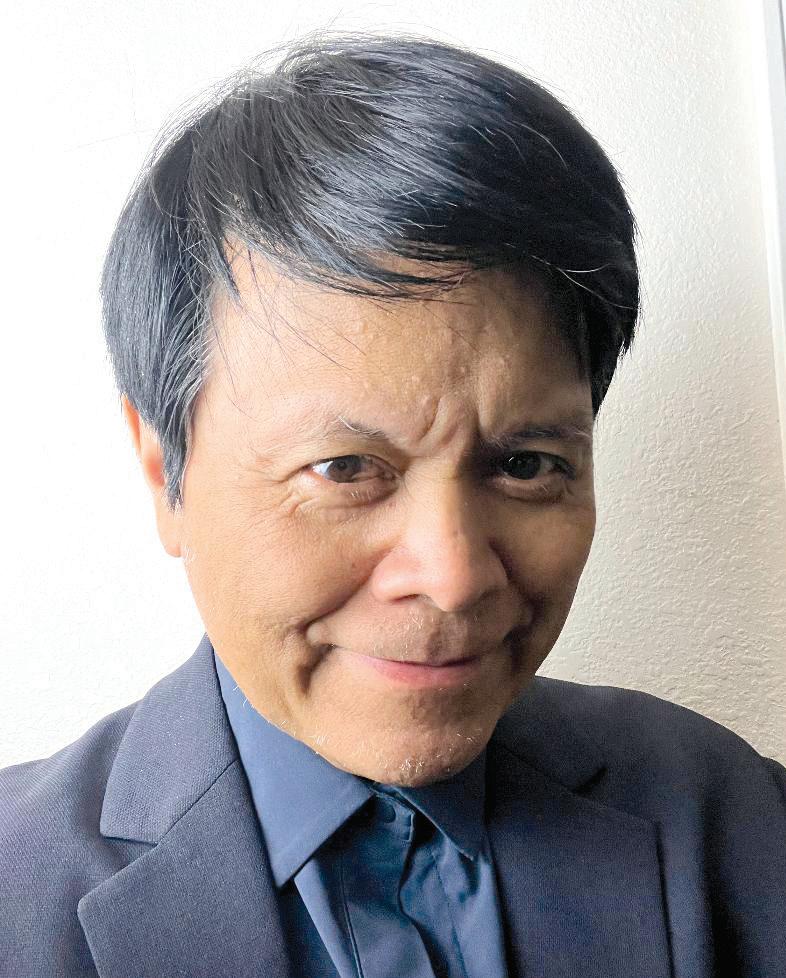
All throughout the discrimination my father endured in the U.S. (anti-miscegenation, lack of opportunities in employment and housing), he found himself in the Black community. But he still was in the throes of colonial mentality. Generally, that’s known as an acceptance of the white narrative, as ‘one goes along to get along’ in society.
Coincidentally, I’m telling my father’s story live on stage on from Feb. 16 - March 4 at Frigid NYC, the New York Fringe Festival, at the Under St. Marks Theater. But you don’t necessarily have to be in New York to experience it. See it from home with a livestream ticket, available at Fringe.NYC (https://www.frigid. nyc/event/6897:338/).
Emil Guillermo is a veteran Northern California journalist, speaker and commentator. He’s at www.amok.com.
Republican Lawmakers Announce Agenda to ‘Fix California’
ness is out of control, the cost of living is unsustainable, schools are failing students, our water infrastructure is outdated and our communities are susceptible to wildfires,” said Sen. Brian W. Jones (R-Encinitas), Senate minority leader and host of the Jan. 25 event.
“As the loyal opposition, I am proud to stand here with my colleagues and commit to fixing this state,” Jones added.
By Solomon O. Smith
California Black Media
California Senate Republicans recently held a rally at the State Capitol announcing their legislative goals to “fix California” for the next year.

Slamming proposals and policies their Democratic colleagues
California Advocates Shine Light on Pregnancy-Related Deaths Among Black Women
By Charlene Muhammad
California Black Media
April Valentine, 31, planned to celebrate her new birth with family and friends, but instead her loved ones found themselves in front of Centinela Hospital in Inglewood on Jan. 28, protesting her death.
Valentine’s family alleges that she complained about leg pain for hours during the birth of her child on Jan.10, but was ignored and neglected by her caretakers at the medical center that specializes in maternal care.
Valentine, pregnant with her first child, died that day.
Her plight is only one episode, advocates say, in what is an escalating crisis affecting Black women during pregnancy throughout California and across the country.
Recently, a group of advocates collaborated to bring awareness to the Black maternal and infant health crisis with a free screening of the film “Birthing Justice: Every Woman Deserves A Beautiful Birth Story” at The Miracle Theater in Inglewood. A panel discussion complemented the featurelength documentary.

“Birthing Justice” covers the issues underpinning — and helping to fuel — the maternal health crisis within the African American community and articulates best practices to enhance birthing equity for all women, especially Black women.
The audience completed a preliminary survey online prior to viewing the film, and later filled out a post survey online. Denise Pines, the executive producer of “Birthing Justice” and co-founder of Women In The Room Productions, talked about the goal of the survey.
“We probably will end up having 100 screenings, and we want to share with legislatures, policy makers, with healthcare institutions, the lived experience of people who are coming into the screenings so they actually have the real data, and we can use that to make the case for some of the actions we want to see happen,” she said.
times more likely to die from a pregnancy-related cause than white women. Multiple factors contributed to these disparities, such as variation in quality healthcare, underlying chronic conditions, structural racism and implicit biases.
“Birthing Justice” strongly emphasized that the high mortality rates among Black women are not due to their genetic makeup, what they ate, how they behaved, nor did any bad habits place them in this situation.
When compared to poor white women with less education, Black women had worse death rates. Black women are unable to buy or educate themselves out of being a statistic when it comes to pregnancy-related deaths. The cause is not race, but racism.
Women In The Room Productions has partnered with the National Birth Equity Collaborative (NBEC), one of the leading policy organizations in the country, to support legislation and public education they believe will make a difference.
One such policy change is the Black Maternal Health Momnibus Act of 2021, which is comprised of 12 bills addressing various dimensions of the Black maternal health crisis. One of the bill’s sponsors, Democratic U.S. Rep. Lauren Underwood from Illinois appeared in the film.
Pastor Thembekila Smart, executive director of the Women of Southern Christian Leadership Conference, Southern California Chapter, moderated the four-person panel in Inglewood and kicked off the discussion with her own birthing stories, ranging from an emergency C-section with her second child during which the doctor asked her husband “if one must be saved, who would it be: his wife or his son?” Her third birth was in her 24th week and her son weighed hardly one pound. Both babies survived and are now thriving young men, Smart shared.
getic and proud advocate for Black women.
“Nobody should die in pregnancy,” she said.
Dr. Hines addressed the importance of OB/GYN care, stressing the need to start conversations with patients from their first visit about planning their pregnancies. She said their vital statistics are also critical — making sure that their blood pressure, blood sugar and weight were well controlled before they got pregnant so that their birthing experience is healthy and safe.
“I am going to work with you, and we will have a shared decisionmaking plan,” Hines emphasized. “The goal of giving more to your patients because they need more, and if we happen to give little more than what they need, it’s OK.”
Debbie Allen, Founder of Tribe Midwifery, said women should not assume that medical establishments will give them the care they are supposed to receive.
“Demand it,” she said. “There are so many layers as to why we get the care that we get, but until those things change, we have to take responsibility to make sure we get the care we deserve,” Allen said.
Allen said women should ask questions, involve their partners, and treat childbirth like planning a wedding.
“This film will shine light on the critical issue of saving lives and this film will help ensure that every pregnant and birthing person’s voice is heard,” said Leigh Purry, senior manager of Community Health, Blue Shield of California’s Health Transformation Lab.
“This film will help ensure that people have access and receive all the support they need to feel safe and cared for. Racism exists and it exists in healthcare,” Purry added.
and Gov. Gavin Newsom are championing, the GOP State Senators presented several bills of their own. They also called for more oversight — and in some cases, a total rehaul — of state programs addressing crime, homelessness, education, climate and more.
“Crime is soaring, homeless-
The Republican lawmakers presented their agenda for 2023 a few weeks after Sen. Janet Nguyen (R-Huntington Beach) delivered the Republican response to Newsom’s 2023-24 California budget proposal. More than once, Nguyen, in her speech, pushed for oversights and audits and rebuked Democrats’ handling of the state
Continued on page 11
The filmmakers explored what they are calling a “national epidemic” in four regions: Washington, D.C., Augusta, Georgia, and several areas in Missouri, and California. They interviewed women affected by current policies — birthing moms and healthcare professionals, as well as birthing advocates, activists, and policy makers at the forefront of advancing policy change.
According to the Centers for Disease Control and Prevention (CDC), Black women were three
“We did not have any idea that our birthing experience would go this way,” said Smart, who described the current state of Black maternal health in the United States as “medical apartheid.”
During their discussion, the panelists amplified the main themes of “Birthing Justice” as they made the case that encouragement, resources and support are necessary, along with improved medical care, to transform the maternal care system.
Dr. LaTanya Hines, an OB/ GYN and member of the Association of Black Women’s Physicians (ABWP) said she was an unapolo-
The event was sponsored by African American Infant/Maternal Mortality (AAIMM), Girls ClubLos Angeles, Southern Christian Leadership (SCLC)-Southern California, Charles Drew University, Black Maternal Health Center of Excellence, Children’s Institute, and Black Women for Wellness (BWW).
Pines recommended supporting and volunteering with the organizations that do the much-needed work to address pregnancy-related deaths of Black mothers and babies and to get better outcomes overall.
For more information about the movement to ensure birthing justice for Black mothers and their families, and to find a film screening in your area, visit BirthingJustice.com.
postnewsgroup.com THE POST, February 8 - 14, 2023, Page 10
Kulay Colorization Instagram
Republican Caucus members press conference at the California State Capitol.
“Birthing Justice” film screening with community partners and advocates (l-r) Pastor Thembekila Smart, SCLC; Adjoa Jones, outreach and engagement coordinator for African American Infant/ Maternal Mortality Prevention Initiative; Debbie Allen of Tribe Midwifery; Leigh Purry of Blue Shield; Khefri Riley of Frontline Doulas; Dr. LaTanya Hines, Association of Black Women’s Physicians; Gloria Davis, Girls Club of Los Angeles; “Birthing Justice” Executive Producer Denise Pines; Gabrielle Brown of Black Women for Wellness.
San Jose Spotlight: 15 of the Most Influential Black Leaders in Silicon Valley
By Loan-Anh Pham San Jose Spotlight
Black residents make up about 3% of Santa Clara County’s population, but the impact of Black leaders on the region is undeniable -- even while facing adversity.
The Black community in Silicon Valley and across the nation face systemic disparities: The population is overrepresented among the homeless and historical housing segregation has resulted in lower rates of Black homeownership.
Data from the 2022 Silicon Valley Pain Index shows the COVID-19 pandemic disproportionately affected Black residents in terms of income and poverty levels, and Black students face higher levels of suspensions compared to white counterparts.
These trends have resulted in what leaders call a “Black exodus” as residents flee pricey Silicon Valley or face displacement.
But there’s hope. Local Black leaders are working to change the odds and boost equality for the community. In celebration of Black History Month, San Jose Spotlight is highlighting 15 of the most influential Black leaders in Silicon Valley.
While this isn’t an exhaustive list of all the tremendous Black leaders in our region, these individuals have broken barriers, shattered stereotypes and inspired change in Silicon Valley.
Here they are in alphabetical order by first name.
Ahmad Thomas
Ahmad Thomas broke barriers in August 2020 when he became the first Black man to lead the Silicon Valley Leadership Group, a powerful trade association of prominent businesses and tech giants.
Right off the bat, Thomas got to work on improving Silicon Valley’s economic vitality, while also prioritizing diversity and equity in business. He advocated for more racial equity in Silicon Valley by helping member companies hire more minority candidates and funding more Black- and Latinxowned startups.
Prior to joining SVLG, Thomas worked as an investment banker for Barclays. Thomas also worked as a senior aide to U.S. Sen. Dianne Feinstein.
Alma Burrell
Eliminating health disparities in underserved communities has been Alma Burrell’s calling. After managing health programs for children for 20 years, Burrell joined Roots Community Health Center as its chief administrative officer. The nonprofit health organization is committed to serving marginalized and underserved communities in San Jose.
She is a leading expert on the need for African-centered medical care and spent 18 years working with the Black Infant Health program in Santa Clara County, which is aimed at improving the wellbeing of pregnant women and their babies.
Black mothers in the U.S. are about three times more likely than white mothers to die from childbirth-related causes, according to the CDC. “I love my people and I want to see healthy babies,” she
told LAist.
Andre Chapman
While working in tech in the 1990s, Andre Chapman was disheartened by the lack of minorities in the field. He personally witnessed the unsettling tale of two Silicon Valleys -- the haves and have nots. He left his lucrative tech job -- a move questioned by some -- and decided to do something about it.
Chapman founded The Unity Care Group in 1993 to develop educational and social programs to enrich the lives of disadvantaged underserved youth. Now he works to improve the foster youth system through mental health and criminal justice reform and has helped thousands of families.
Chapman is a national expert on creating culturally proficient services and a recipient of San Jose State University’s Evelyn T. Robinson Outstanding African American Alumnus award.
Forrest Williams
During his 16 years in public office, Forrest Williams prioritized equitable education and access to public services, working to build multiple community centers and libraries. He said education is a priority for Black residents and future generations.
Williams a former San Jose councilmember and Oak Grove School District Board member who spent 35 years as an IBM engineer.
The county’s Black students face higher levels of suspensions, lower test scores and less mental health support. Williams said increasing equity in education requires community involvement from parents, students and leaders.
“You’ve got to take an active role in the educational system... that will make a significant difference,” Williams told San Jose Spotlight. “Kids (are) the objects of the future.”
Iola Williams
The late Iola Williams made history as San Jose’s first Black councilmember in 1979 and went on to serve for 12 years, including two terms as vice mayor. She was a pivotal leader and advocate for civil and LGBTQ rights.
Williams was a major supporter of the shift to district elections in San Jose -- which allowed for the election of more diverse policymakers -- and an advocate for neighborhoods.
Williams received the African American Community Service Agency’s Lifetime Achievement Award, which was renamed after her, in 2016. She died at age 83 in 2019 after losing a battle with Parkinson’s disease.
Rev. Jeff Moore II
Rev. Jeff Moore II said visibility and meaningful representation for the region’s Black community is the first step.
Moore is former president of the San Jose/Silicon Valley NAACP and is a longtime community activist whose work revolves around education, homelessness and oversight on police departments. A tireless champion for civil rights, Moore said Black representation is vital -- from corporate leadership to classrooms.
“Our diversity is so rich and so great, but yet, the Black voice,
there’s nobody advocating for it,” Moore told San Jose Spotlight. “That’s one of the biggest things: who is that champion that we can go to?”
LaDoris Cordell
LaDoris Cordell made history as Northern California’s first Black female judge and served in Santa Clara County for 20 years, from 1982-2001.
In addition to devoting her legal career to creating justice for minorities and low-income people, Cordell is an author, artist, vocalist and pianist. She is also a member of the LGBTQ community and a mother to two daughters.
In, 2021, Cordell published “Her Honor,” a book that explored the broken criminal justice system and how to fix it. She also served as a Palo Alto councilmember and San Jose independent police auditor.
“The number of African Americans who reside in Santa Clara County and throughout Silicon Valley continues to drop... My concern is that the contributions of this area’s Black residents will fade from the public memory,” Cordell told San Jose Spotlight. “Even though our population is small, racial profiling of African Americans continues unabated.”
Milan Balinton
Milan Balinton, the executive director of the African American Community Service Agency, confronted more than one barrier growing up. Facing a learning disorder and growing up in poverty, Balinton decided to dedicate himself to public service and education -- fighting for those who are voiceless.
He learned advocacy from a young age when his grandmother introduced him to the NAACP and urged him to “give back to the community, for many have sacrificed so that we could be free, and you must do the same.” Those words still guide him today.
Balinton is also a trustee on the Franklin-McKinley School Board and is involved with the Black Leadership Kitchen Cabinet. He was the 2016 winner of Ebony Magazine’s Power 100 People’s Choice Award.
Nicole Taylor
Nicole Taylor is the CEO of Silicon Valley Community Foundation, the largest charitable foundation in the United States.
Taylor joined the foundation at a critical moment: It had just lost its former CEO amid a scandal that involved misconduct by top leadership. Taylor jumped in headfirst to restore trust and rebuild values at the power philanthropic organization. She met with nonprofit partners to learn more how the foundation can open doors for marginalized communities.
Taylor herself is no stranger to hardship. She’s the daughter of an immigrant mother who came to the U.S. without an education and went on to become an educator in Oakland’s public school system. Her previous roles include serving as Stanford University’s dean of community engagement and diversity and CEO of the East Bay Community Foundation.
Phaedra Ellis-Lamkins
Phaedra Ellis-Lamkins is a social justice advocate, business-
woman and community organizer. She started her career as a union organizer in San Jose and became the executive officer of the South Bay AFL-CIO Labor Council in 2003 at the age of 26, which boasts 110 unions and more than 100,000 members.
She left the post in 2009 to lead D.C.-based Green For All, an anti-poverty organization founded by national news personality Van Jones. Currently, she serves as cofounder and CEO of Promise, a company reworking the bail system.
San Jose Magazine named Ellis-Lamkins one of the 100 most powerful people in Silicon Valley. She was recognized as a Young Global Leader by the World Economic Forum and one of the 25 most Powerful Americans by Ebony Magazine.
Regina Celestin Williams
Regina Williams grew up in low-income housing in Richmond. She knows firsthand the importance of affordable, stable and safe housing for all -- and now she’s working to ensure others have it. In 2021, Williams became the executive director of Silicon Valley at Home, a nonprofit that advocates for policies to increase the supply of affordable housing.
Williams was inspired by a “transformative” affordable housing class at Stanford, prompting her to pivot from engineering and making it her life’s goal to advance the housing movement. She previously served as the director of housing development for First Community Housing. In 2019, Williams was named one of the area’s 40 Under 40 by the Silicon Valley Business Journal.
Her husband, Jahmal, is also a respected community leader. He is the co-chair of the Black Leadership Kitchen Cabinet and San Jose State University’s director of advocacy for racial justice.
Rick Callender
Three years ago, Rick Callender broke barriers by becoming the first Black man to lead the Santa Clara Valley Water District -- the area’s largest water supplier. It was a dream for a man who worked his way up the ranks at the organization since 1996.
Callender, an attorney and longtime community leader, serves as president of the California-Hawaii chapter of the NAACP. In that role, he helps oversee 74 branches and youth units of the association to help ensure racial justice and equality.
“When fighting for justice, it’s important to remember that it’s both a marathon and a sprint at the same time,” he told California Black Media.
Ricks mother, Norma Callender was, also a civil rights leader in the San Jose community.
Rosalyn Hughey
Rosalynn Hughey broke barriers both in a development industry dominated by men -- as well as racial barriers by becoming the first Black city department head in San Jose in 2021. Today, she serves as a deputy city manager in America’s 10th largest city.
Hughey, who previously ran the city’s massive planning department, grew up watching her dad -- a contractor -- build homes from the ground up. While juggling one of the hardest jobs at San Jose City Hall, Hughey worked to address citywide injustices and focus on improving neighborhoods. She’s spent more than three decades as an urban planner in a field often dominated by white men. Hughey is also credited with kickstarting conversations about race and equity within the city.
Tony Alexander
Tony Alexander is no stranger to San Jose politics. He served as a leader in San Jose’s labor movement spanning decades with the
Agenda to ‘Fix California’ ...
Continued from page 2
government.
Sen. Kelly Seyarto (R-Murriato) slammed high crime rates and human trafficking under Democrat leadership. Democrats hold a super majority, he said, pointing out the 32-to-8 ration of Democrats to Republicans in the State Senate.
He blamed progressive policies for rising crime in the state, citing Los Angeles County District Attorney George Gascon, who met heavy opposition for his attempts at bail and police reforms.
Seyarto called for the creation of a task force to examine the fentanyl epidemic, which he links to high crime rates. Opioids have been a leading cause of drug overdoses across the country, according to death rates reported by the National Institute of Health.
“California’s approach to public safety needs to change, for our families, for the survivors and for our community,” said Seyarto. “In order to do that we need to fix California and pass these effective policies.”
The Republicans’ condemnations of California’s social and economic health go against assessments Democratic leaders are making.
During his budget announcement earlier in January, Newsom said his proposals are putting the state on “solid economic footing while continuing to invest in Californians — including transformative funding to deliver on universal preschool, expand healthcare access to all and protect our communities.”
Senate President pro Tempore Toni G. Atkins (D-San Diego) said Newsom’s decision not to cut critical resources is making a difference.
“We’re seeing that in action as local communities, emergency responders and state agencies do
United Food and Commercial Workers Union, leading its minority coalition. An East San Jose product, he served on the Alum Rock Union School Board and was appointed and reelected to the San Jose Evergreen Community College Board last year. He also started his own political consulting venture, JW Consulting in 2015.
Alexander is the president of the Silicon Valley African American Democratic Coalition and past president of the San Jose/Silicon Valley NAACP.
His wife, Linda Stuckey-Alexander, has also been a force in local politics and leads Democratic Activists of Women Now (DAWN) and his parents, Charles “Chuck” and Saphrona Alexander, were longtime community activists in San Jose.
Walter Wilson
Walter Wilson, a partner of the Silicon Valley Minority Business Consortium, has for years fought for equal treatment of Black and minority-owned businesses.
He believes stopping displacement of Black residents in San Jose requires creating economic resources for small businesses and communities. Wilson is a project manager for the Silicon Valley African-American Cultural Center Project, which provides health services, retail options, housing and cultural representation to the county’s Black community.
“Without economic opportunity and economic growth, you can’t build your household,” Wilson told San Jose Spotlight. “You can’t build your community and you definitely won’t have the opportunities for your kids to do better.”
all they can to help us get through these severe winter storms armed with the resources and tools made possible in past budgets by lawmakers determined to prepare our state for what may come,” she said.
“While no one can predict the future, we are entering this year from a position of strength and readiness.”
Sen. Steven Bradford (D-Inglewood), one of two Black state senators (the other is Sen. Lola Smallwood Cuevas (D-Ladera Heights), said Newsom’s budget moves the state “in the right direction,” while acknowledging that, facing a $24 million shortfall, lawmakers will have a challenge to set priorities.
Water woes and wildfire fears were also on the Republicans’ agenda.
Sen. Brian Dahle (R-Bieber), said there are several major dams and the Sites Reservoirs in his district, which is the largest Senatorial district in square miles in the state.
Dahle blames Democrats for the ongoing drought, calling them out for not making more of an effort to complete the reservoir, which was funded in 2017.
The Sites Project Authority issued a report, that concluded had the facility been completed, it could have stored a total 382,000 acre-feet of water for the state. Dahle criticized the lack of action on water storage and plans to streamline the process while holding Democrats “feet to the fire.”
Sen. Roger Niello (R-Fair Oaks) discussed the Republican proposal for homelessness, called the ACT Plan. Almost 28% of all unhoused people in the United States (about 170,000 people) in 2021 lived in California — although the state’s population accounts for about 12% of the U.S. population. These numbers are growing according to data from the Senate Housing Committee.
Niello said, California has “thrown” $20 billion on the homelessness problem, but it remains unsolved. “Common sense measures,” he said, created by California Senate Republicans are needed to tackle the issue. Niello said he introduced Senate Bill (SB) 232 to make it easier to treat mental health among the unhoused. But Niello also wants to know where monies earmarked for homelessness in the past have gone.
“No more fake checks, no more failing programs,” warned Niello, “Californians deserve better for their money.”
Sen. Rosilicie Ochoa Bogh (R-Yucaipa) used “choice” when referring to school policies, a word which has become synonymous with Charter schools. Ochoa Bogh said recent state test score data reveals that 53% of students don’t meet the English standard; 67% failed math; and 71% scored below the passing grade in science.
Although California student test scores have fallen over the last few years, education officials say the lower scores are the result of COVID shutdowns, and many of those numbers are slowly improving, according to a report from the California Department of Education.
The report shows that significant improvements have been made and that all scores across the country are lower, but California has done better on average than most of the nation.

Black students, however, have been the lowest performing subgroup in the state (only above students with disabilities) even before the pandemic began.
“Quality education is one of the most important services that government provides to our children,” Ochoa Bogh said. “Unfortunately, California students continue to fall further behind.”
postnewsgroup.com THE POST, February 8 - 14, 2023, Page 11
Congresswoman Barbara Lee Reacts to President Biden’s 2023 State of the Union Address
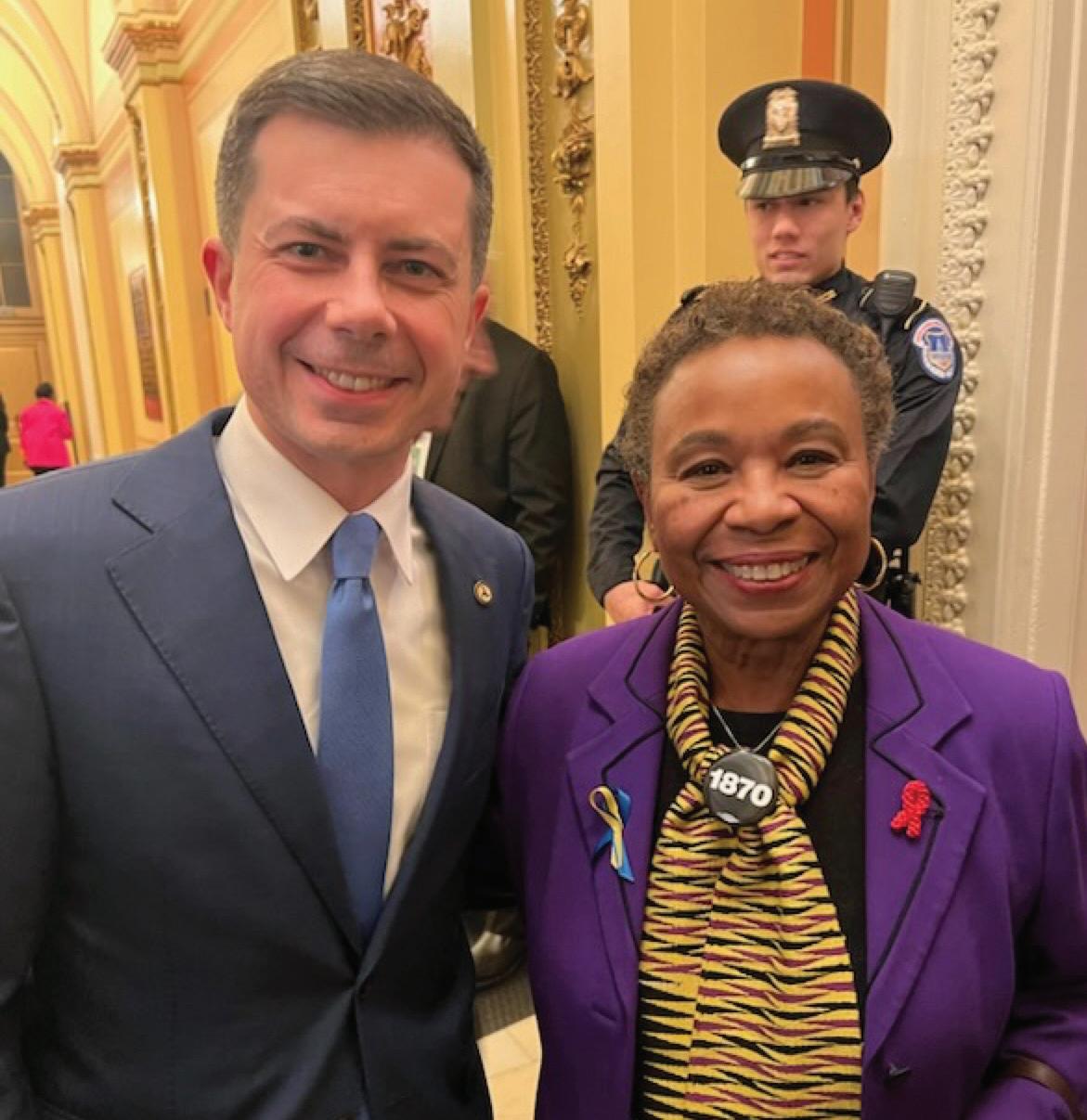

Congresswoman Barbara Lee released the below statement on Wednesday following President Joe Biden’s State of the Union
A Son of Oakland...

Continued from page 1
demonstrates.
There are several great sportsmen from Oakland who haven’t given back to their place of origin in any form. Giving back motivates others and helps to shine a light on the needs of our city.
Bill was quite receptive when asked about partnering with others who share similar visions for Oakland. Bill presently resides in Las Vegas, an ideal spot to train his world-champion son. He is very interested in helping to create safe places where kids can seek
Danny Glover, Gus Newport Guests at Commonwealth Club on Feb. 13
refuge, get training and learning skills that will help them become better men and women as they transition into whatever life has in store for them.
Bill considers himself a cultural engineer. He is a practicing, dedicated Muslim and a true believer. He sees Oakland as presently being in a state of turmoil, but not hopeless. He summarizes some of his advice to us by saying “we don’t need to be looking to the stars for help because help rests within our own desires and determination. It’s within our grasp.”
Community Leaders...
Continued from page 1
harassment.”
Attending the press conference were state and local leaders including Councilmember Fife, Oakland Mayor Sheng Thao, California Senator Aisha Wahab, Assemblymember Liz Ortega, Assemblymember Mia Bonta, City Council President Nikki Fortunato Bas and Councilmembers Rebecca Kaplan, Kevin Jenkins and Janani Ramachandran.
Also attending were about 100 individuals and members of many local organizations who came to stand in solidarity.
A new database by Princeton University and the Anti-Defamation League has begun tracking threats received by public officials, identifying women, particularly women of color, to be targeted, totaling 42.5% of all incidents.
The Oakland Progressive Alliance (OPA) has begun a petition calling on business leaders, civil rights groups and advocates connected to any of the individuals perpetrating misleading, politically motivated or dangerous rhetoric to join them in publicly condemning these personal attacks. They are also urging the community to speak out when they see the scapegoating of Black women and women of color in leadership positions.
In her remarks, State Senator Wahab said, “Threats of rape are a particular avenue of violence that are only reserved for those of us who are not heterosexual men. I, too, have been on the receiving end of such threats. … If we stay quiet about this type of abuse, the efforts to … make us shrink, cower and be quiet will only continue.”
Councilmember Kaplan said, “This is a good morning because this is what solidarity looks like. This is what it means when we say we will not stand idly by when people are attacked and particularly when Black women are attacked.
“These attacks are happening because people fear the kind of justice and transformation that
is happening. These attacks are a sign of the success of these incredible Black women leaders.”
Kaplan continued: “We will not stand by whether it is individuals leaving disgusting voice mails, putting comments online, whether it is the rightwing white supremacist Proud Boys coming into Alameda County to attack people in our communities, whether it is a politician at the national level raising hate or it is one at the local level raising hate as a part of a political strategy.”
Cat Brooks, a journalist, actor, and a founder of the Anti PoliceTerror Project (APTP), said, “Let me be clear: the work is going to continue. (In spite of) your threats, your actions, your voicemails, your emails, your Twitter warrior messages, the work is going to continue.”
Brooks said she has been subjected to countless threats over ATPT’s demands to end police violence, which claims the lives of over a thousand Black people a year. “Because people don’t like what I have to say, they think it’s OK to threaten my life, to threaten my home, to threaten my child.”
One of the first threats she received 14 years ago was a threat of sexual assault against her then 9-year-old daughter, she said.
Thao said, “We know this happens, (but) why does this happen?
There are still far too many people in our society who cannot deal with women of color being in positions of power. These messengers of hate … cannot deal with women of color being in leadership and demanding, not asking, for respect and inclusion.

“They are trying to send a message to all women of color to stay in your lane, stay in your place. You wait your turn … This is what we say: ‘Hell no.’”
She continued: “We will not be intimidated. We will stand together, all of us beautifully together, and we will send a message to those messengers of hate: You cannot stop us.”
The public is invited to join the Commonwealth Club for a lively and inspiring evening with longtime friends and fellow activists Danny Glover and Gus Newport. The Rev. Dr. Dorsey Blake will moderate.
The event will take place live at the Commonwealth Club, at xxxx, in San Francisco. The time is 6:007:00 p.m. with a check-in beginning at 5:30 p.m. when doors open. Monday, Feb. 13, 2023. Ticket prices are $10 for members, $20 for nonmembers. Online tickets are available at no cost for members and $10 for nonmembers. Here is the link: https://commonwealthclub.secure.force.com/ticket/#/ instances/a0F3j00001cgivaEAA
The three men will share stories from organizing communities for more than 50 years and why they are dedicated to the development of what Martin Luther King, Jr., called The Beloved Community.
The three men are dedicated to community development and human rights, topics that have never been more relevant as safety, public health, asset development, and education continue to be priorities in our communities.
This will be a special evening of storytelling for people of all ages.
Glover and Newport were both raised by working-class parents who were active in labor unions and in their communities. Because of their parents’ and grandparents’ strong influences, they became involved in civil rights and community support as well as anti-apartheid and other international peace and human rights organizations.
About the Speakers
Danny Glover is an awardwinning actor, starring in many well-known films such as “The Color Purple” and the first “Lethal Weapon.” He has also gained respect for his wide-reaching community activism and philanthropic efforts, with a particular emphasis

on advocacy for economic justice, and access to health care and education programs in the United States and Africa.
Internationally, Glover served as a goodwill ambassador for the United Nations Development Program from 1998–2004, focusing on issues of poverty, disease, and economic development in Africa, Latin America, and the Caribbean, and serves as a UNICEF ambassador.
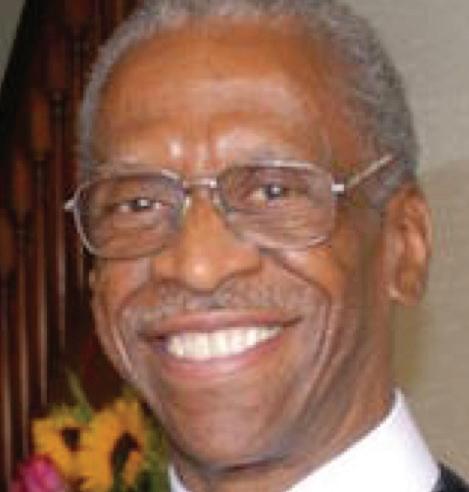
With a degree in economics, his first job out of college was with the Berkeley Planning Department. His next job was with Model Cities for San Francisco. He has traveled worldwide seeking peace and understanding.
Eugene “Gus” Newport is a social justice activist, grassroots leader, community and economic development consultant, and has worked for several foundations and served on the faculties of MIT, Yale, UC Santa Cruz, U Mass Boston, and Portland State.
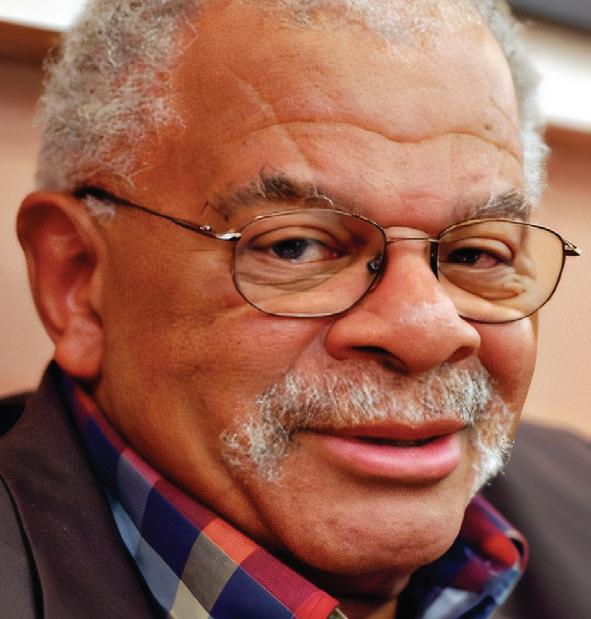
He was the two-term mayor of Berkeley, CA (1979–1986). During his tenure he served on the advisory board of the U.S. Conference on Apartheid and the Committee on The Question of Palestine. He served as the American representative as vice president on the World Peace Council.
Dorsey Odell Blake has served as presiding minister of The Church for the Fellowship of All Peoples (San Francisco) since 1994. Fellowship Church was founded in 1944 as the nation’s first intentionally interracial, interfaith congregation by Dr. Howard Thurman and Dr. Alfred Fisk. Dr. Blake has extensive field ministry experience with interfaith groups addressing justice and peace issues. Recently, Dr. Blake was the keynote speaker at the 19th Annual Daoist Gathering and served as chaplain for the Institute for Religion and Science.
Watching the Watcher...
Continued from page 1
with his additional demands, like the additional $800,000 to pay for an outside investigation that his monitoring team is paid to perform.
It surprises no one, that whenever Oakland’s department is on the brink of completing the terms of the NSA - thus relieving Warshaw of his contract — he drops a single-incident “bombshell” that raises the question as to whether Oakland can move forward without him.
In this most recent case, Warshaw’s handpicked law firm made eight policy recommendations,
Last night, our nation and the world saw President Biden outline the historic, unprecedented progress we have made over the past two years with a Democratic government.
We should all take time to celebrate this progress, especially considering the state of our nation when Biden took office. In just two years, we’ve created 12 million jobs—more than any other president has created in four years. Unemployment is down to its lowest level in half a century, and real wages—especially in underpaid sectors—are increasing.
Seniors on Medicare can finally stop worrying about outrageous health care costs now that insulin has been capped at $35/month out-of-pocket, and the Affordable Care Act Enrollment is at a record high.
In just a single Congress, we’ve made more progress on climate and gun violence legislation than in the past 30 years with the Inflation Reduction Act and Bipartisan Safer Communities Act. And we’ve continued to make progress towards an AIDS-free generation
as we mark the 20th anniversary of PEPFAR.
But as POTUS emphasized in an impassioned call to Congress, we have more work ahead to finish his agenda. The economy still isn’t working for everyone. I applaud the President’s bold call for new taxes on billionaires and stock buybacks; universal childcare, home care, and pre-K; paid sick leave; and bold housing investments—some of the biggest inflationary costs hitting working people.
The President also spoke powerfully to the need for reform to our policing system and the racial injustice that plagues our country. From combatting systemic racism to the war on reproductive rights, it is vital that Congress hold the line against Republican extremism and take back our rights.
While these extreme MAGA Republicans attempt to raise taxes and destroy Social Security and Medicare, I look forward to working with the president and my Democratic colleagues to continue delivering for the people of this country in the coming year.
recommendations that should have been put in place years ago by Warshaw’s team and none of which identify any wrongdoing on the part of now-embattled Chief LeRonne Armstrong.
The current report reveals that Warshaw failed to put in basic controls that would have prevented this mess. The public has a right to know what exactly Warshaw has done that is worth $1.2 million annually.
So, who is watching the watcher?
Lynette Gibson McElhaney is a former Oakland City Councilmember and current principal of McElhaney & Associates.
postnewsgroup.com
Richard Johnson, William Haney and Wayne Kendrick.
U.S. Rep. Barbara Lee, Congressman Gregory Meeks (center) and President Joe Biden. (Photo: NBC News / Youtube)
Danny Glover
Secretary of Transportation Pete Buttigieg and Congresswoman Lee.
At Leader Jeffries’ #StateoftheUnion reception “with my amazing Democratic colleagues & guest, Pastor Mike McBride,” said Rep. Lee.
Gus Newport The Rev. Dr. Dorsey Blake













 Photo by Ken Epstein.
William Haney and boxing champion Devin Haney.
Photo by Ken Epstein.
William Haney and boxing champion Devin Haney.
































